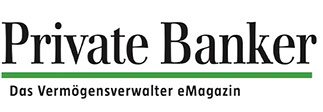

Value Column von Hans Peter Schupp
21 MAY 2024
Liquidity glut for share holders
Hans Peter Schupp, managing partner of Fidecum AG and portfolio manager of the Contrarian Value Euroland Fund (ISIN: LU0370217092) talks about the benefits of share buy-back programs
It sounds somewhat paradoxical: although the economy in the eurozone is not exactly running smoothly and most companies are rather cautious in their forecasts for future business prospects, companies are floating in cash! According to calculations by Deutsche Bank, the companies in the STOXX 600 have a total of almost 1.5 trillion euros in cash – around 35% more than before the coronavirus pandemic. They are likely to distribute a good third of this to their shareholders in the form of dividends or share buybacks over the next two years. This corresponds to a dividend yield of around 5% – in contrast, the S&P 500 only achieves around 3.5%.
Group balance sheet quality allows share buyback programs
Three of the STOXX 600 sectors stand out in particular with good dividend yields: energy with close to ten percent, financials with around eight percent and telecommunications with round about seven percent. This is good news for investors, as they benefit directly from dividends and share buyback programs. Well, where does the new wealth come from? Although corporate profits have been stagnating in real terms for more than 15 years, the quality of companies‘ balance sheets has improved considerably, as the level of debt has fallen significantly. After years of expansion investments financed by new debt, companies have used the last few years to reduce their liabilities. Hence, money can now be distributed to the share holders again.
Critics complain: Where happens to investment in the future?
However, there are critics of share buyback programs who say: “Why don’t companies invest in acquisitions or in improving their products to make themselves fit for the future instead of distributing the money to shareholders?” Well, most of them do both. They invest into future projects and still think about the shareholders. We at Fidecum also appreciate share buybacks. If companies have no better use for their profits, they can pass them on to shareholders. When shares are taken off the market, consequently earnings per share increase. A very positive effect from our point of view.
Positive examples: Eni and Deutsche Bank
It remains to be seen, whether it has to be as excessive as Apple’s share buyback. The iPhone group has announced the largest share buyback program in the company’s history. Shares worth a total of 110 billion dollars are to be bought back. That is quite something. For a comparison, let us take the Italian energy giant Eni as an example from the portfolio of our Contrarian Value Euroland Fund. The decline in the recent high gas prices has hit the Italian oil and gas group hard, but in view of still high revenues, Eni now wants to spend even more money on buying back its own shares. The management has increased the already planned buyback program for the current year by half a billion to 1.6 billion euros.
Another example may be Deutsche Bank. It only recently started buying back shares. The program was approved by the European Central Bank (ECB) and has a volume of up to 675 million euros. Compared to the 2023 share buyback program of 450 million euros, the volume of the new program is therefore another 50% higher. “With this share buyback program and the dividend proposal for 2023 of EUR 0.45 per share, we want to return EUR 1.6 billion in capital to our shareholders this year. This lifts the total amount to EUR 3.3 billion since 2022,” said CFO James von Moltke, explaining the decision. It fits the picture, as the 10 largest banks in the Eurozone will buy back their own shares worth 15.4 billion euros this year, according to calculations by the financial services provider Bloomberg.
The companies‘ share buyback programs also benefit investors in our Contrarian Value Euroland fund. In our investment approach, which has been tried and tested for more than 25 years, we look for undervalued companies with understandable business potential. In doing so, we invest like an entrepreneur looking for opportunities, even if this means swimming against the prevailing market current. This time we are swimming with the market, as share buyback programs are becoming increasingly popular. We are happy to be part of this
Translation for convenience only!
About the author: Hans Peter Schupp is a managing partner of Fidecum AG und the portfolio manager of the Contrarian Value Euroland Fund.

